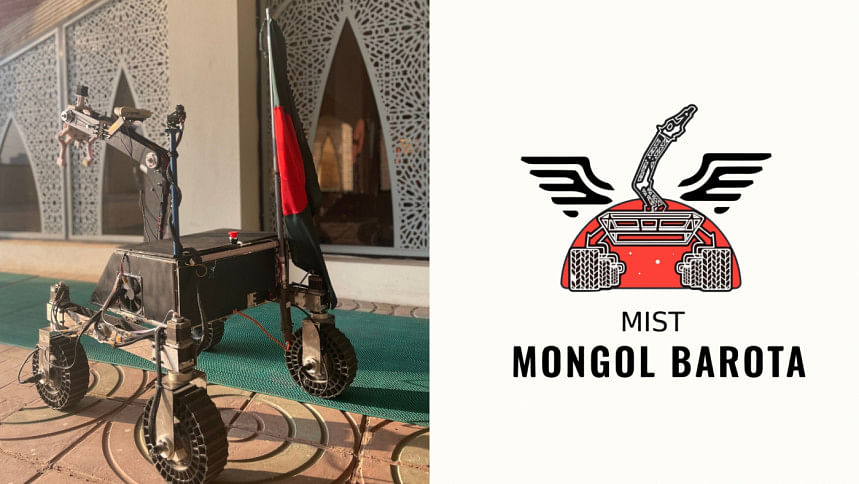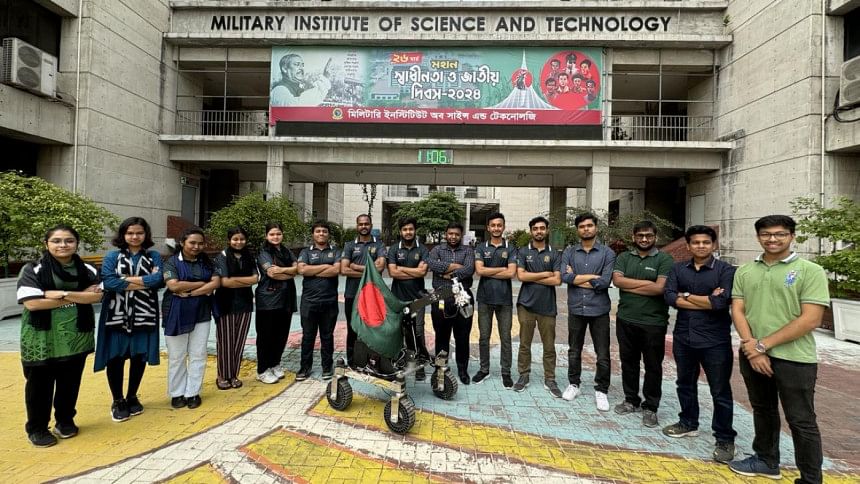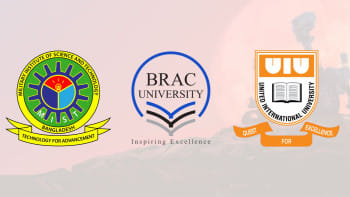Mongol Barota: MIST’s Mars rover team participating in the University Rover Challenge finals

Mongol Barota – the Mars rover team from Military Institute of Science and Technology (MIST) – is set to participate in the University Rover Challenge (URC) 2024 finals with their PHOENIX 4.0 rover. They are one of three teams from Bangladesh who will be representing the country at one of the world's most popular robotics competitions tailored for university students across the world.
Led by Md Jawadur Rahman, with Al-Amin Rashid Tarek as the co-leader, the Mongol Barota team comprises key members across various departments, each playing a crucial role in the rover's development and success. Ahmed Ahnaf Saqafi leads the mechanical sub-team, while Istiaque Ahmed Arik oversees the software and communication sub-team. Then there is Mansib Hasan Rohan, who directs the electrical sub-team, followed by Raisul Islam Rahad and Anika Tahsin Raisa leading the rover's autonomy, navigation, and science team.
As for guidance, the team turned to their supervisors, including MIST's Commandant Maj Gen Mohammed Saidul Islam, rcds, ndc, psc, Head of the Department of Computer Science & Engineering (CSE) Brig Gen Mohammad Sajjad Hossain, and Head of the Department of Mechanical Engineering (ME) Brig Gen Md Awal Khan.
Mongol Barota's journey started back in 2014 when the team made its debut at the URC, securing the 12th position globally. In 2015, the team returned to the URC arena, this time earning the 9th position worldwide and securing the title of "Best Team from Asia". Fast forward to 2021, Mongol Barota reached the virtual final of the URC and ranked first globally. Besides the URC, the team also boasts notable achievements from competitions such as the European Rover Challenge (ERC) and Anatolian Rover Challenge (ARC).
Working with the rover gave the team hands-on experience of using various advanced equipment, taught them how to think critically, sharpened their problem-solving skills, and helped build team work and patience. It also allowed team members to form life-long friendships.

Mongol Barota's faculty advisor, Shah Md Ahasan Siddique, Lecturer, Dept. of ME, and one of the former team co-leads and mechanical team leads reflects on this from his own experience. He says, "The rover team creates a path for students to venture into multidisciplinary work at the early years of their university lives. This helps them a lot when they opt for higher studies abroad or step into the workplace."
The construction of the rover involved collaboration among various teams. The mechanical team meticulously crafted the rover's structure while circuitry and power systems were adeptly managed by the electrical team. At the same time, the software team designed control mechanisms and a comprehensive feedback dashboard. Moreover, the synergy between the science and mechanical teams led to the development of a sophisticated life-detection system, proficient in discerning extinct, extant, and absent bio signatures with high precision.
Mongol Barota's initial submission at the URC's System Acceptance Review (SAR) garnered the highest score among Bangladeshi contestants, with an impressive 90.15 percent. Moreover, the team's science category performance earned them a perfect score of 16 out of 16 in the science category.
Of course, the path to success was not devoid of challenges for MIST's Mongol Barota. Importing essential components, such as carbon fiber and communication system parts, posed significant hurdles. Nevertheless, through perseverance and the support of the institution's resources, the team managed to overcome these obstacles, emerging stronger and more resilient. In the words of Jawadur Rahman, "The team members of Mongol Barota pushed their limits and showed remarkable dedication and hard work to make this achievement possible."
Besides Mongol Barota's PHOENIX 4.0, BRAC University's Mongol Tori and United International University's Yggdrasil have also qualified for the University Rover Challenge (URC) 2024 finals. Between May 29 and June 1, these teams will compete against 35 others from nine different countries at the Mars Desert Research Station (MDRS) in Utah at the final round of the competition.
Fatima Ashraf is a Campus Ambassador for The Daily Star from Military Institute of Science & Technology (MIST).


 For all latest news, follow The Daily Star's Google News channel.
For all latest news, follow The Daily Star's Google News channel. 








Comments